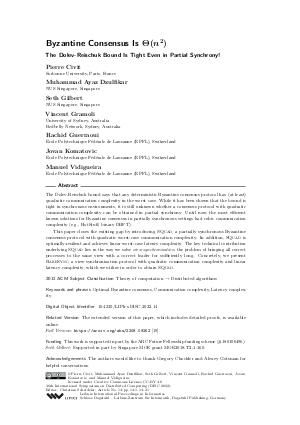LIPIcs.DISC.2022.14.pdf
- Filesize: 0.84 MB
- 21 pages

 Creative Commons Attribution 4.0 International license
Creative Commons Attribution 4.0 International license





































Feedback for Dagstuhl Publishing